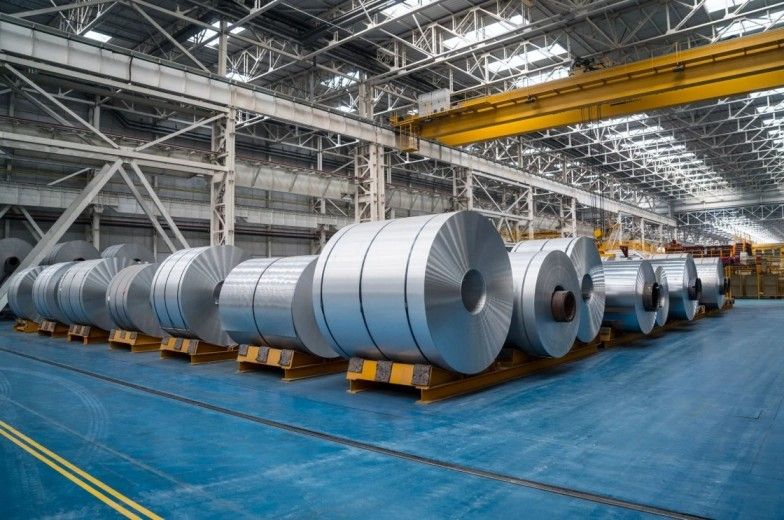Discover Flow Meters: Information, Facts, and Learning Resources
Flow meters are instruments designed to measure the flow rate or quantity of a gas or liquid moving through a pipe. They are essential in various industries for monitoring and controlling fluid dynamics, ensuring efficiency, safety, and compliance with regulations.
Importance of Flow Meters
Flow meters are crucial in numerous sectors, including:
-
Water and Wastewater Treatment: Monitoring and controlling water usage and treatment processes.
-
Oil and Gas: Measuring fuel dispensing, custody transfer, and chemical injection.
-
Food and Beverage: Ensuring consistent ingredient proportions and maintaining sanitary conditions.
-
Pharmaceuticals: Managing fluid mixing and matching applications.
-
HVAC Systems: Regulating heating, ventilation, and air conditioning processes.
These devices help in maintaining system integrity, optimizing resource usage, and ensuring product quality.
Recent Developments in Flow Meter Technology
In the past year, there have been notable advancements and updates in flow meter technology:
-
Regulatory Approvals: Flow meters have received approvals from regulatory bodies, allowing their use in specific applications under certain conditions.
-
Technological Innovations: New flow meter designs and materials have been introduced, enhancing accuracy, durability, and ease of integration into existing systems.
These developments contribute to more efficient and reliable fluid measurement across various industries.
Regulations and Standards for Flow Meters
In India, flow meters are subject to specific regulations and standards:
-
Model Approval: Flow meters must undergo a model approval process to ensure they meet national standards before being legally installed and used in metering systems.
-
Performance Testing: Standards such as IS 6784:1996 outline methods for performance testing of water meters, ensuring their accuracy and reliability.
-
Water Metering Guidelines: Government guidelines specify standards for ultrasonic water meters and other devices to standardize measurement practices.
These regulations ensure that flow meters provide accurate and reliable measurements, supporting fair billing and efficient resource management.
Tools and Resources for Understanding Flow Meters
For those interested in learning more about flow meters, several resources are available:
-
Educational Guides: Comprehensive guides explain different types of flow meters and their applications.
-
Industry Standards: Performance testing standards provide detailed methods to assess meter accuracy.
-
Regulatory Guidelines: Government documents outline technical specifications and usage protocols.
These resources provide valuable information for understanding the various types of flow meters and their applications.
Frequently Asked Questions
What are the different types of flow meters?
Flow meters come in various types, including:
-
Positive Displacement Flow Meters: Measure the actual flow of liquid by dividing the fluid into fixed, incremental volumes.
-
Magnetic Flow Meters: Use a magnetic field to detect the flow of conductive liquids.
-
Ultrasonic Flow Meters: Employ ultrasonic waves to measure flow velocity and rate without direct contact with the fluid.
-
Turbine Flow Meters: Measure flow by detecting the rotational speed of a turbine placed in the fluid stream.
How do flow meters work?
Flow meters operate based on different principles:
-
Positive Displacement: Fluid moves mechanical components that divide the flow into fixed volumes.
-
Electromagnetic: Fluid passing through a magnetic field induces a voltage proportional to its velocity.
-
Ultrasonic: Sound waves travel at different speeds depending on the flow direction, allowing for flow measurement.
-
Turbine: Fluid flow causes a turbine to rotate, with speed proportional to flow rate.
Why are flow meters important?
Flow meters are vital for:
-
Accuracy: Ensuring precise measurement of fluid flow.
-
Efficiency: Optimizing resource usage and system performance.
-
Compliance: Meeting regulatory requirements and standards.
-
Quality Control: Maintaining consistency in product manufacturing processes.
Are there any recent updates in flow meter technology?
Yes, recent developments include:
-
Regulatory Approvals: Certain flow meters have received approvals from regulatory bodies for specific applications.
-
Technological Innovations: New designs and materials have been introduced to enhance performance and integration.
What regulations govern flow meters in India?
In India, flow meters are governed by:
-
Model Approval: Ensuring compliance with national standards before installation.
-
Performance Testing: Adhering to standards like IS 6784:1996 for water meters.
-
Water Metering Guidelines: Following government specifications for device standards and usage.
Conclusion
Flow meters play a crucial role in various industries by providing accurate measurements of fluid flow. Understanding their types, working principles, and the regulations governing their use is essential for ensuring efficiency, safety, and compliance. By staying informed about recent developments and utilizing available resources, individuals and organizations can make informed decisions regarding flow measurement technologies.




